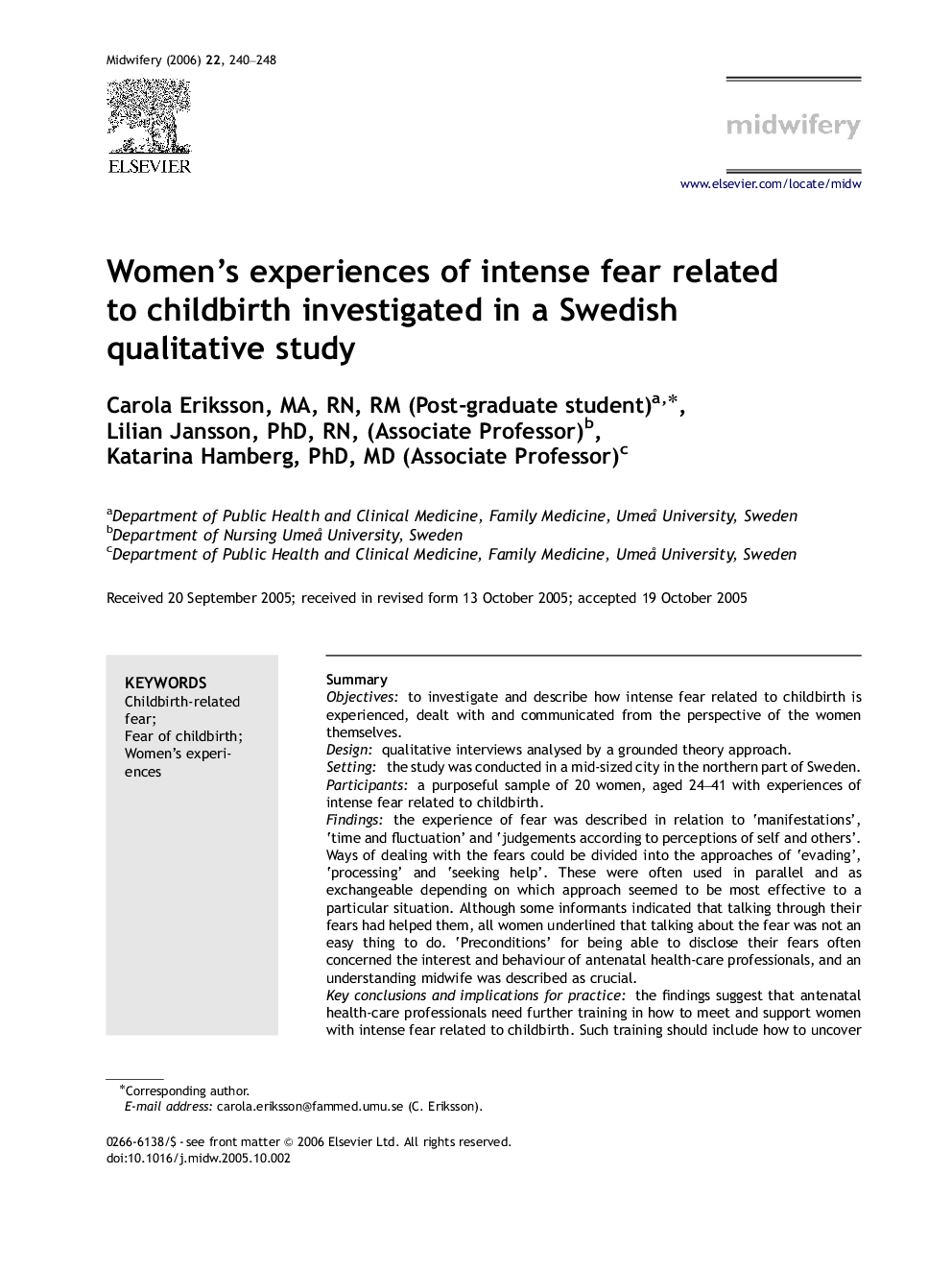| Article ID | Journal | Published Year | Pages | File Type |
|---|---|---|---|---|
| 1085558 | Midwifery | 2006 | 9 Pages |
SummaryObjectivesto investigate and describe how intense fear related to childbirth is experienced, dealt with and communicated from the perspective of the women themselves.Designqualitative interviews analysed by a grounded theory approach.Settingthe study was conducted in a mid-sized city in the northern part of Sweden.Participantsa purposeful sample of 20 women, aged 24–41 with experiences of intense fear related to childbirth.Findingsthe experience of fear was described in relation to ‘manifestations’, ‘time and fluctuation’ and ‘judgements according to perceptions of self and others’. Ways of dealing with the fears could be divided into the approaches of ‘evading’, ‘processing’ and ‘seeking help’. These were often used in parallel and as exchangeable depending on which approach seemed to be most effective to a particular situation. Although some informants indicated that talking through their fears had helped them, all women underlined that talking about the fear was not an easy thing to do. ‘Preconditions’ for being able to disclose their fears often concerned the interest and behaviour of antenatal health-care professionals, and an understanding midwife was described as crucial.Key conclusions and implications for practicethe findings suggest that antenatal health-care professionals need further training in how to meet and support women with intense fear related to childbirth. Such training should include how to uncover and counter socially constructed norms and expectations about what pregnant women should feel in relation to childbirth.
